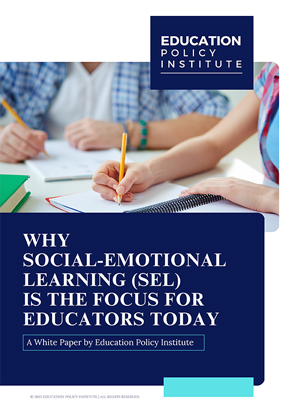Teachers engage in professional learning through various activities, which encompass courses, conferences, and talks packaged as professional learning experiences. Additionally, their learning is influenced by other instances that impact both their personal and professional lives.
Why is professional Learning Important?
Here are some core points that highlight the significance of professional learning:
-
Student-Centric Focus
Education revolves around students and their academic achievements. The primary concern is nurturing student learning, enhancing their schooling experience, shaping their present and future selves.
-
Impact of Educators
The adults working within educational institutions directly influence the students under their care. There exists a correlation between teachers' instructional methods and students' learning outcomes.
-
Teacher Learning and Development
Teachers' ongoing learning and professional growth serve to enhance their teaching practices, leading to overall school improvement. By developing expertise in the art of teaching and gaining knowledge about effective teaching strategies, teachers can positively impact student learning and ultimately enhance student achievement.
All in all, professional learning plays a crucial role in establishing high-quality schools and there exist numerous effective strategies to facilitate the professional growth of teachers.
Practical Steps to Improve Professional Learning
Maintaining a conducive culture is essential for schools to successfully implement the following steps toward professional learning for their teachers.
-
Establishing a Culture of Shared Values and Principles
To create a school culture aligned with desired outcomes, take a deliberate and inclusive approach. Instead of starting with an outcome in mind, focus on establishing a culture of shared values and principles. This requires active involvement from school leaders and consultation with all members of the school community. First, define the school's key values and principles. This includes fostering a culture that values and appreciates input from all staff members and providing regular constructive feedback. Staff alignment is crucial for accepting these principles.
To gain staff support, it is important to provide a clear rationale for each value, offer practical examples of how they apply in everyday situations, encourage open discussions and remain receptive to feedback. These efforts ensure that the shared values are understood, embraced, and integrated into the fabric of the school community. Once staff members are fully on board, consistently reinforce and reference these values and principles to establish them as the standard culture.
-
Applying Purposeful Learning
When disengagement dominates, several individuals feel like they're going through the motions of a checkbox activity. To address this, schools can start sessions on time, provide adequate support for session planning and ensure facilitators understand adult learning theory. In professional learning sessions, involving teachers, staff and administrators in knowledge construction and application is essential. Teachers should be given time to plan how they can integrate new learning into their teaching practice. This will help them to foster a sense of ownership and relevance in their professional development. When teachers are actively involved in constructing their knowledge and applying it to their practice, they are more likely to feel engaged and motivated.
-
Fostering an Inclusive Open-Door Approach
Teachers benefit from an open-door policy that encourages collaboration and learning from their peers. Schools can facilitate this by establishing guidelines for classroom observations and promoting a culture of continuous improvement. In addition to promoting classroom observations, school leaders can further foster open communication by holding open office hours. This designated time allows anyone in the school community to drop by and discuss ideas or concerns with the leaders. By offering open office hours, leaders create a less formal channel of communication where individuals may feel more comfortable sharing their thoughts and suggestions. This practice sends a clear message that the contributions and concerns of the staff are valued, leading to increased engagement and a sense of empowerment among teachers.
-
Ensuring Effective Feedback Skills
In schools, it is imperative to ensure that teachers are provided with genuine and specific feedback rather than vague or disingenuous praise coupled with an overwhelming number of developmental targets. This approach, which is often unhelpful, can be overwhelming for educators. For the betterment of all teachers, regardless of their positions within the school, it is essential to educate them on how to deliver high-quality feedback and effectively probe for it. This instruction should be modelled and championed by school leaders as a guiding principle.
Individuals within the school community should be encouraged to be mindful of the appropriate timing for providing feedback and the type of feedback to offer, taking into account the observed teacher's needs and the professional relationship between the two individuals. Striving to establish a "feedback culture" where candid and constructive feedback is the norm is the ideal objective.
-
Encouraging openness in education
Creating an environment where authentic discussions thrive requires embracing vulnerability and openness. A practical method to encourage such conversations in meetings is by
incorporating "sunshine and rain" check-ins, an approach similar to what teachers often employ in classrooms. Each participant shares a recent achievement they are proud of (sunshine) and a difficulty they have encountered (rain). By celebrating accomplishments and acknowledging obstacles, this effective practice establishes the norm that everyone faces ups and downs, fostering a safe space for open dialogue and problem-solving.
Valediction
There is a wealth of evidence supporting the notion that student performance, behaviour and attentiveness in class are significantly influenced by a teacher. The role of a teacher extends beyond merely delivering information; they are facilitators of learning, mentors and role models for their students. By recognizing the importance of teachers and providing them with professional learning opportunities, we can empower them to become protagonists in the educational process.
Latest
Trends blogs
- Education and Industry Alignment: Rethinking Skill-Based Curriculum
- Education Policy Reform Amid Global Challenges and Shifting Standards
- Certification and Credentials: The New Fuel for Career Growth
- Technology in Outcome-Based Education: Driving Change in Higher Education





